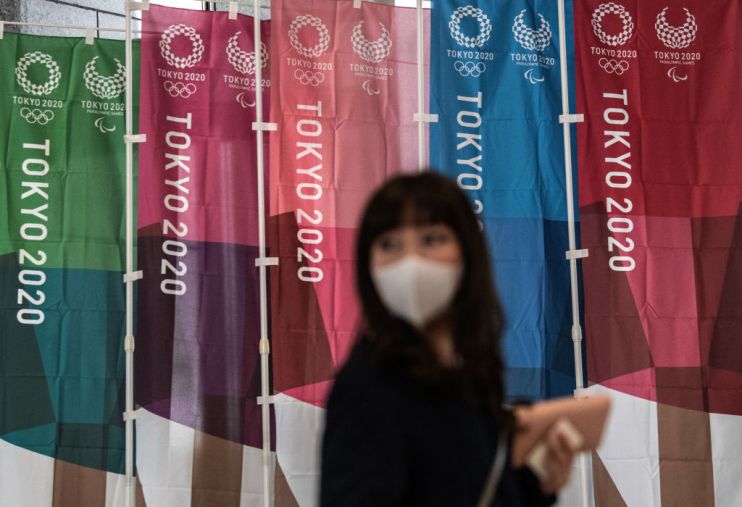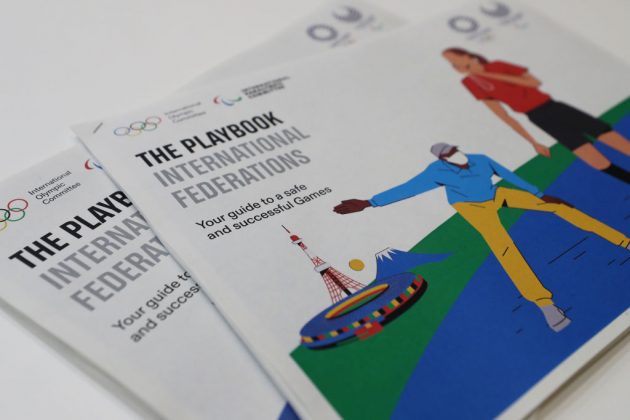How Tokyo plans to stage a safe Olympics this year – and why cancellation remains the last resort

In spite of the relatively upbeat mood music emanating from the corridors of the International Olympic Committee (IOC), nagging questions about whether the Games can be safely staged this summer have persisted.
But the organisers of the world’s largest sporting event have now given the world the first concrete indications of how they propose to stage the Olympic and Paralympic Games.
The first Olympic “playbook” was published last week. It gives representatives of International Federations an outline of what they can expect from the period from 14 days prior to leaving for Japan all the way up to their departure for home.
The measures outlined in the playbook underline the extent to which the IOC wants the Olympics to go ahead this summer.
There is currently no suggestion of what would happen if the Games were to be cancelled again.
Some of the measures set out in the playbook will be all too familiar. They include social distancing, mask wearing – with a warning not to breach Olympic branding guidelines – and handwashing.
Other measures, though, are more specifically designed for an immense sporting event that will see Japan visited by representatives from more than 200 nations, including over 15,000 competitors.
Starting 14 days prior to their scheduled departure for Japan, all visitors must begin monitoring their health.
They must make a list of all the people they expect to come into close contact with whilst in Japan and prepare a detailed activity plan of the first 14 days of their stay.
The Japanese government’s COCOA Covid-19-tracing app must be downloaded ready for arrival.
Within the 72-hour period prior to their proposed departure, visitors must take a Covid-19 test and receive a negative test certificate. They must also be prepared to be tested again on arrival in Japan.
Vaccination not mandatory but no high-fives allowed
The playbook additionally makes it clear that support for athletes should be restricted simply to clapping rather than singing or chanting.
Unnecessary contact is discouraged, with high-fives and hugs being deemed inappropriate.
Alongside these stipulations regarding individual behaviour, a central plank of the IOC’s plans is the appointment by each federation of a Covid-19 Liaison Officer.
Liaison Officers will play a key role as conduits between the International Federations and representatives of other stakeholders, including the organisers and the Japanese government.

Perhaps the hottest topic of the playbook is vaccination. The IOC is not mandating vaccinations for visitors; that would be too controversial and difficult, putting pressure on governments’ established vaccination priorities regarding the vulnerable and key workers.
The IOC has, however, written to the British Olympic Association and its national counterparts around the world, encouraging them to correspond with their respective governments and to report back.
While the BOA has said that its athletes will not “skip the queue”, we can be confident that will not be the end of the story. The stakes are simply too high for the issue to go away.
$800m ticket revenue black hole
Despite these measures, many remain against the Games taking place this summer at all. Some say that it is not right to have them without fans and others point to the risks of the Games becoming a “super-spreader event”.
There is, however, no getting around the hugely significant sums of money in question and that financial considerations will play a huge part in the decision-making process.
Certainly, the prospect of having no ticket income is an alarming one and would likely leave a $800m hole in Olympic finances.
Nevertheless, even that sum would be dwarfed by the loss of sponsorship income and, more significantly, broadcast income, if the Games were not to go ahead at all.
That, in no small part, is why the IOC and Tokyo organisers will only cancel these Games with the greatest reluctance, and as a last resort.
In the meantime, ensuring the Games can go ahead as safely as possible is the top priority.
Nick White is a partner at law firm Charles Russell Speechlys.